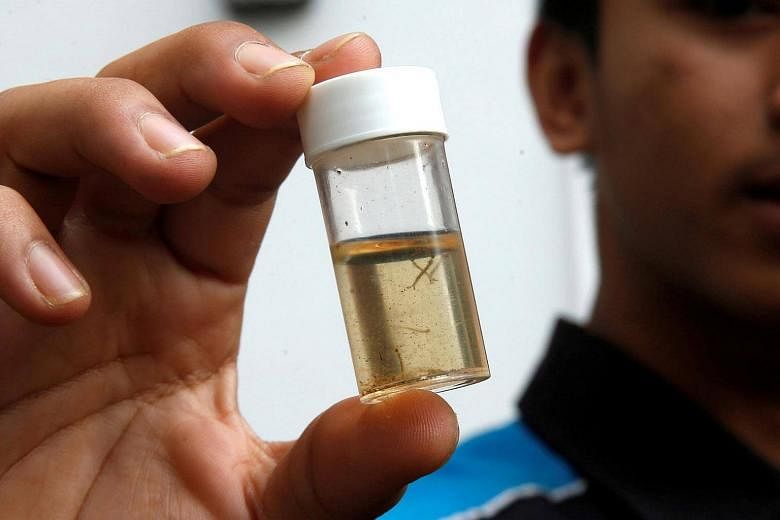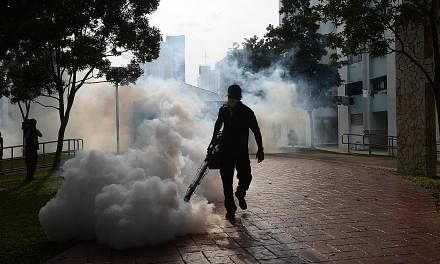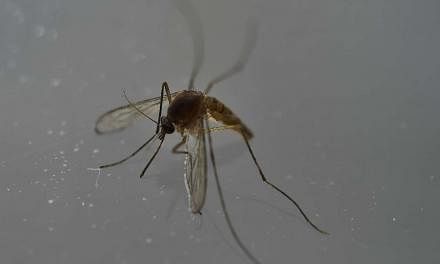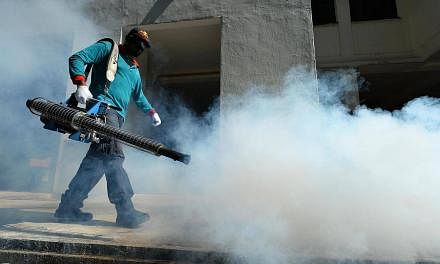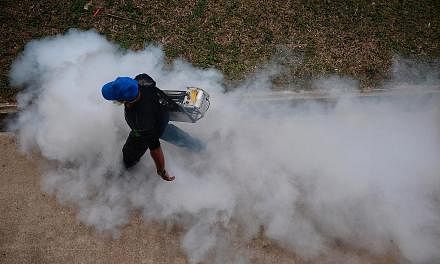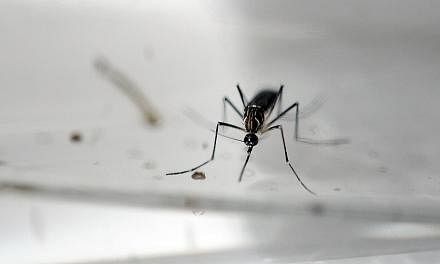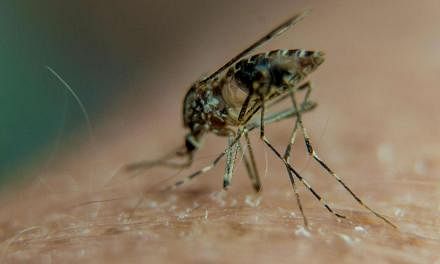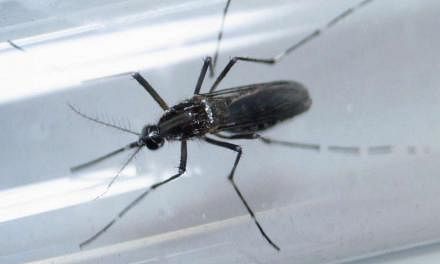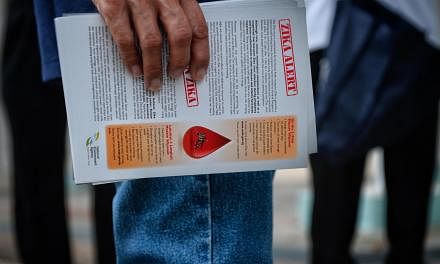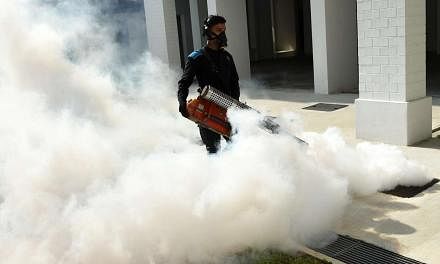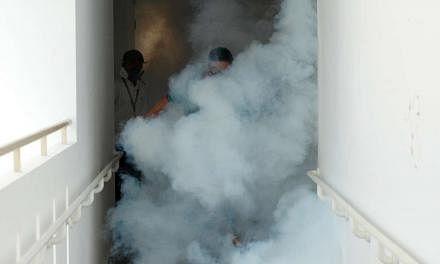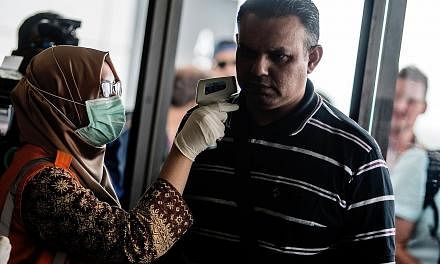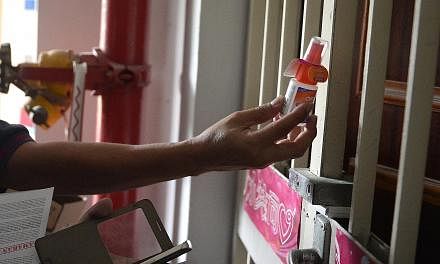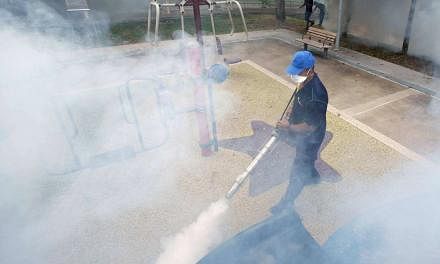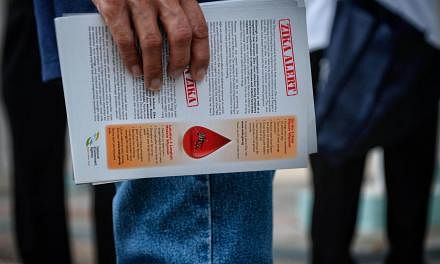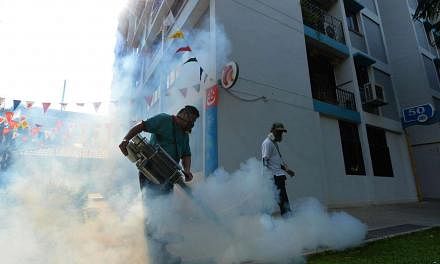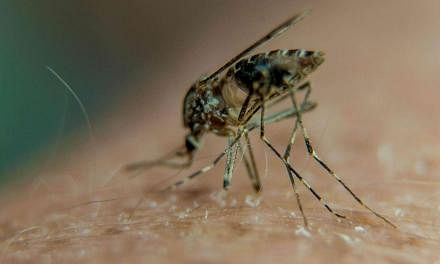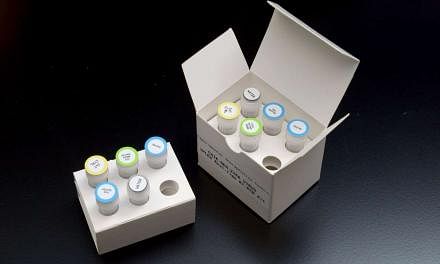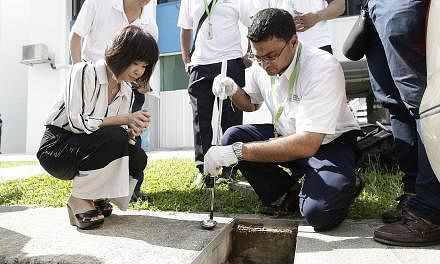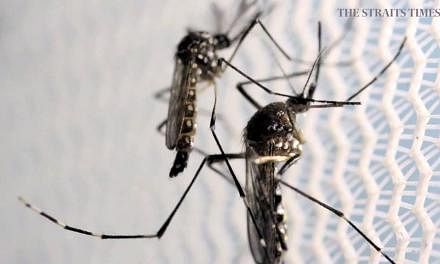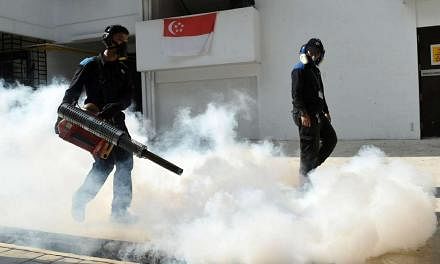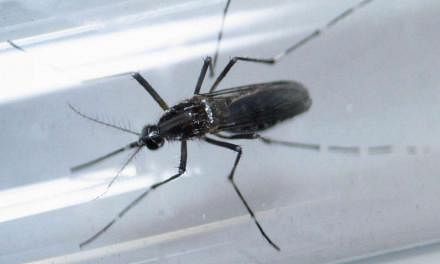As Singapore and Malaysia grapple with Zika and dengue fever, scientists at the International Atomic Energy Agency (IAEA) are asking countries afflicted with mosquito-borne diseases to consider sterilising the insect.
The method - called Sterile Insect Technique (SIT) - is not new but the global spread of Zika has scientists promoting it to suppress mosquitoes which transmit the diseases when they bite humans.
Trays of mosquitoes are gathered in special lab facilities, where the males are fed nectar and females bags of blood (not human). Then scientists separate them in special chambers according to sexes and use X-rays to give the males a low dose of radiation to sterilise them before sending them off into the wild.
"Conventional methods are useful but not sustainable," said Dr Konstantinos Bourtzis, a molecular biologist at the IAEA. He was speaking on the sidelines of the agency's workshop to promote the SIT method.
Pointing to the migration of mosquitoes, their increasing resistance to insecticides and the virtual impossibility of eradicating all breeding sites as roadblocks to curbing them from spreading these diseases, the IAEA portrays its irradiated mosquitoes as an environmentally friendly means of pest control.
ENVIRONMENTALLY FRIENDLY METHOD
Conventional methods are useful but not sustainable... There's no chance for (mosquitoes developing) resistance in our technology.
DR KONSTANTINOS BOURTZIS, molecular biologist at the IAEA.
"There's no chance for (mosquitoes developing) resistance in our technology," said Dr Bourtzis.
Indeed, SIT allows governments to counter any diseases that can be spread by mosquitoes, since it is a form of birth control for insects.
Scientists are banking on it to reduce the number of Aedes mosquitoes in South-east Asia and thus lower the risk of the diseases they carry - namely dengue, Zika and chikungunya.
Dr Bourtzis said the low levels of radiation do not affect the quality of male mosquitoes bred in laboratories. Some scientists had raised concerns that radiation made it harder for male mosquitoes to attract mates and is thus not effective because the females would continue to mate with wild male mosquitoes instead.
Male mosquitoes are harmless. Only the females bite humans and carry viruses in them. There is no absolute guarantee that only male mosquitoes are selected for radiation, but scientists argue that given existing technology, the SIT method remains promising.
"The SIT way has to be integrated with conventional methods like removing breeding sites, sanitation," said Dr Bourtzis.
To increase the success rate of suppressing mosquito populations, Dr Bourtzis suggested combining the SIT method with another known technique called Wolbachia, a type of bacteria that is injected into Aedes mosquitoes. This biocontrol strategy involves Wolbachia-carrying Aedes male mosquitoes mating, but it makes the eggs of the female unable to hatch. In countries like Thailand and China, male mosquitoes are microinjected with Wolbachia as well as dosed with radiation. "A combined approach is the safest method," said Dr Bourtzis.
The downside to SIT is that it is time-consuming, costly and laborious. It would take years before countries see a drop in their dengue problem.
There is also a high price tag that comes with producing massive amounts of male mosquitoes to affect change in one area, Dr Bourtzis told The Sunday Times. But conventional Aedes control methods - from keeping potential breeding grounds clean to fogging - would assist in lowering mosquito populations, driving costs down.
"Any method which can contribute in suppressing and the reduction of the population prior to SIT is welcome," said Dr Bourtzis. "This will increase the efficacy and efficiency of the sterilised release."
